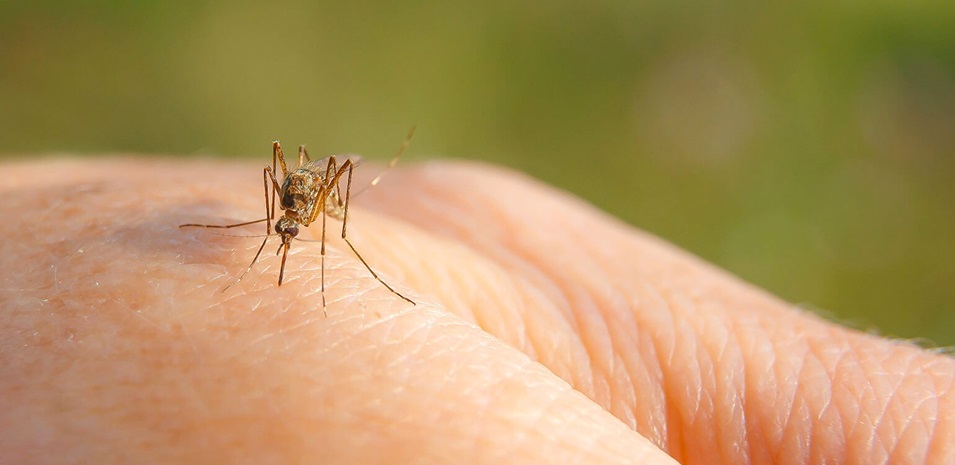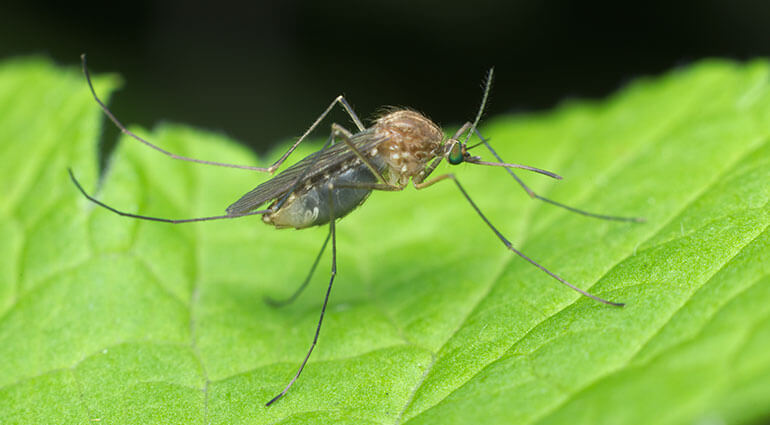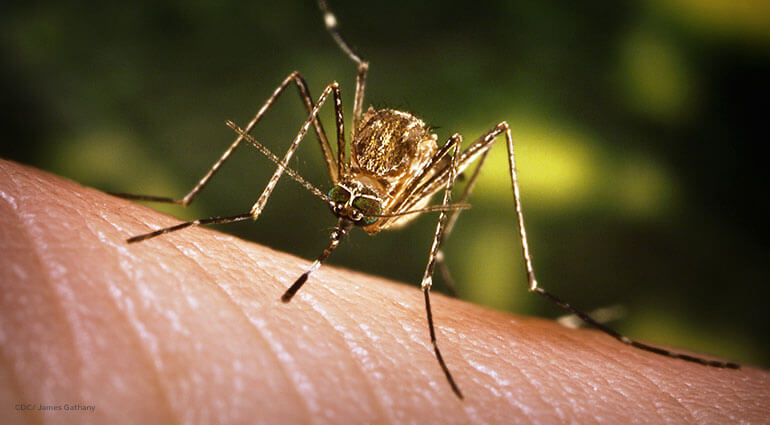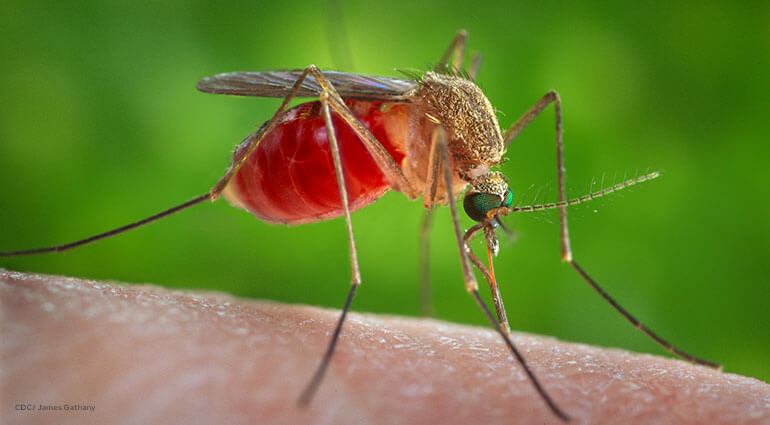
WEST NILE VIRUS: SYMPTOMS, TREATMENT & PREVENTION
West Nile virus is most commonly spread to humans when bitten by an infected mosquito. Learn about the symptoms of West Nile virus and how to help protect your loved ones from this mosquito-borne disease.

West Nile virus is spread to people when bitten by a mosquito that previously bit an infected bird. Over 150 different mosquito species are suspected of transmitting the virus, including Culex pipiens, Culex tarsalis, and Culex quinquefasciatus.1

Culex pipiens mosquito

Female Culex tarsalis mosquito

Culex quinquefasciatus mosquito
We know how important it is to protect your family from mosquito-borne diseases like West Nile virus. That’s why we’ve spent 60 years researching ways to help you combat mosquitoes at the Institute of Insect Science for Family Health Read below to learn about West Nile virus symptoms and get advice from our experts on how to help get rid of mosquitoes that may carry West Nile virus in and around your home.
WHERE IS WEST NILE VIRUS MOST COMMON?
West Nile virus is commonly found in Africa, Europe, the Middle East, North America, and West Asia.2 The geographic range of West Nile virus has continued to expand since it was first discovered in Uganda in 1937.3
SIGNS AND SYMPTOMS OF WEST NILE VIRUS4
According to the Centers for Disease Control and Prevention (CDC), approximately 80% of people who are infected do not show symptoms of West Nile virus. The other 20% of infected people will develop West Nile virus fever, along with the following symptoms:
-
Fever
-
Headache
-
Body Aches
-
Fatigue
-
Nausea
-
Vomiting
-
Swollen Lymph Nodes
-
Occasionally a Rash on the Trunk of the Body
Approximately 1 in 150 people infected with the virus will develop more severe conditions like encephalitis or meningitis. The severe symptoms of West Nile virus include:
-
Severe Headache
-
High Fever
-
Neck Stiffness
-
Muscle Weakness
-
Stupor
-
Disorientation
-
Tremors
-
Convulsions
-
Coma
-
Paralysis
Always consult your physician if you are experiencing any of these symptoms of West Nile virus.
WEST NILE VIRUS TREATMENT2,4
Unfortunately, there aren’t any antiviral medications for West Nile virus. According to the CDC, treatment for mild cases focuses on reducing fever and relieving pain with over-the-counter medication. In severe cases, treatment for West Nile virus requires hospitalization to provide patients with intravenous fluids and respiratory support, as well as to help prevent secondary infections.
HOW TO HELP AVOID WEST NILE VIRUS5
LEARN MORE ABOUT WEST NILE VIRUS
-
For more information about this mosquito-borne disease, check out theWorld Health Organization’s West Nile Virus Fact Sheet.
-
For more tips to help protect your home and family from these disease-carrying insects, readHow to Help Get Rid of Mosquitoes.
FIND SOLUTIONS FOR MOSQUITOES
We know how important it is to protect yourself and your loved ones from mosquito-borne diseases. That’s why our experts have developed a variety of products designed to help kill mosquitoes that may carry the West Nile virus.
DISCLAIMER
This is provided for your information only and is not intended to diagnose or treat any medical condition. Should you have any symptoms or concerns, please contact your doctor.


